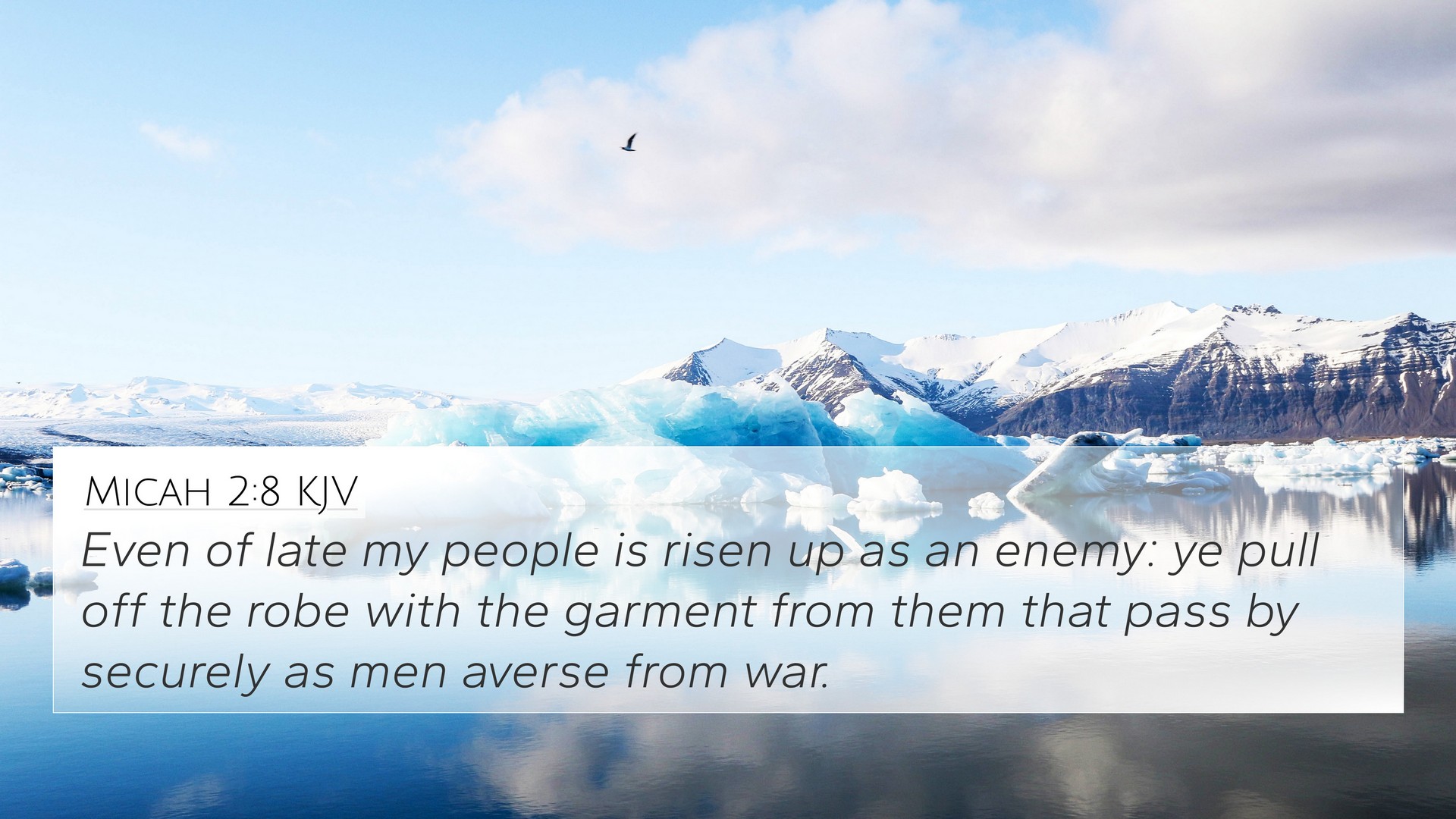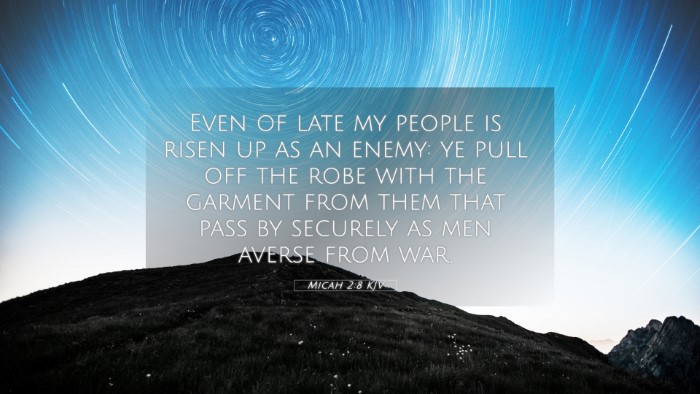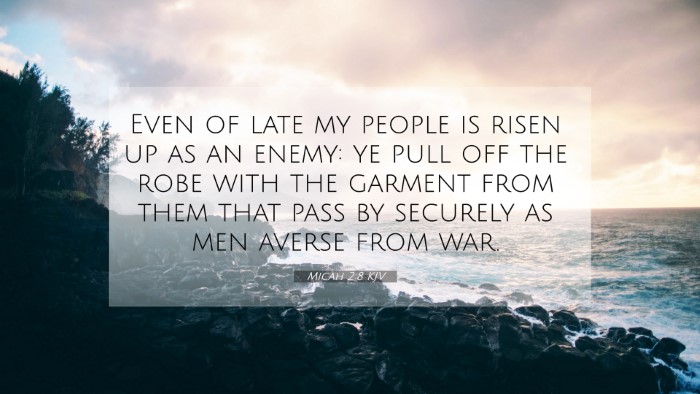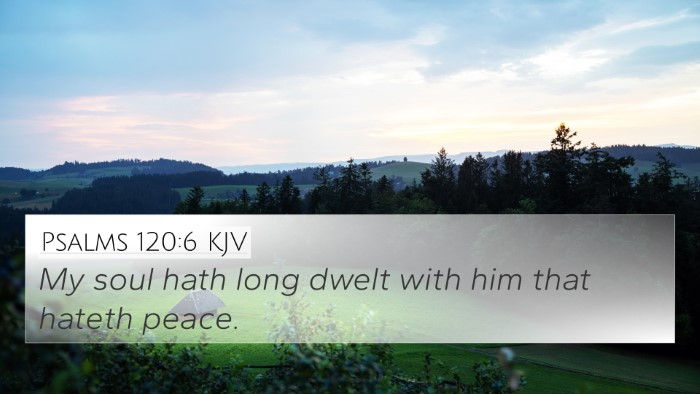Old Testament
Genesis Exodus Leviticus Numbers Deuteronomy Joshua Judges Ruth 1 Samuel 2 Samuel 1 Kings 2 Kings 1 Chronicles 2 Chronicles Ezra Nehemiah Esther Job Psalms Proverbs Ecclesiastes Song of Solomon Isaiah Jeremiah Lamentations Ezekiel Daniel Hosea Joel Amos Obadiah Jonah Micah Nahum Habakkuk Zephaniah Haggai Zechariah MalachiMicah 2:8 Similar Verses
Micah 2:8 Cross References
Even of late my people is risen up as an enemy: ye pull off the robe with the garment from them that pass by securely as men averse from war.
Uncover the Rich Themes and Topics of This Bible Verse
Listed below are the Bible themes associated with Micah 2:8. We invite you to explore each theme to gain deeper insights into the Scriptures.
Micah 2:8 Cross Reference Verses
This section features a detailed cross-reference designed to enrich your understanding of the Scriptures. Below, you will find carefully selected verses that echo the themes and teachings related to Micah 2:8 KJV. Click on any image to explore detailed analyses of related Bible verses and uncover deeper theological insights.
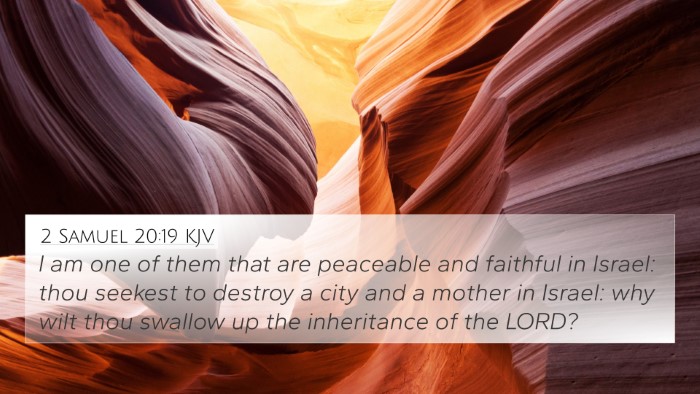
2 Samuel 20:19 (KJV) »
I am one of them that are peaceable and faithful in Israel: thou seekest to destroy a city and a mother in Israel: why wilt thou swallow up the inheritance of the LORD?
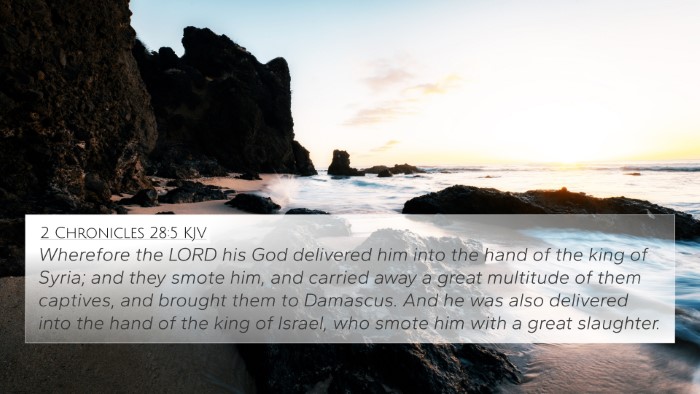
2 Chronicles 28:5 (KJV) »
Wherefore the LORD his God delivered him into the hand of the king of Syria; and they smote him, and carried away a great multitude of them captives, and brought them to Damascus. And he was also delivered into the hand of the king of Israel, who smote him with a great slaughter.
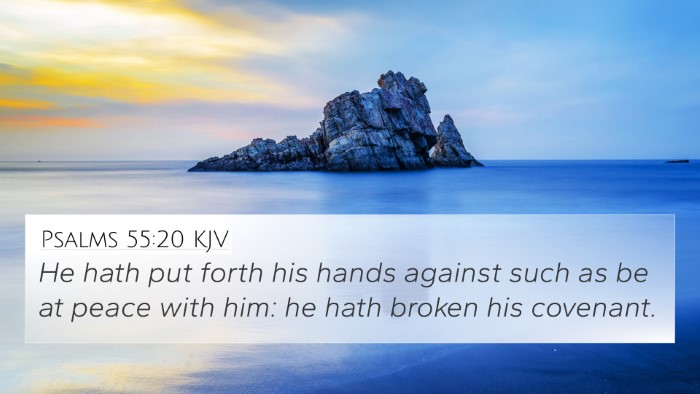
Psalms 55:20 (KJV) »
He hath put forth his hands against such as be at peace with him: he hath broken his covenant.
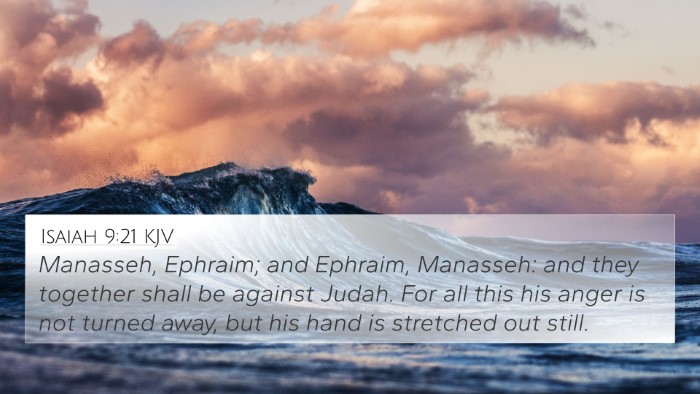
Isaiah 9:21 (KJV) »
Manasseh, Ephraim; and Ephraim, Manasseh: and they together shall be against Judah. For all this his anger is not turned away, but his hand is stretched out still.
Micah 2:8 Verse Analysis and Similar Verses
Understanding Micah 2:8
Verse: "But recently my people have risen up as an enemy; you pull off the robe with the garment from those who pass by trustingly, with no thought of war." (Micah 2:8, ESV)
Overview
This verse from the Book of Micah addresses the treachery and deception that the people of Israel have engaged in. It emphasizes the betrayal of trust and the exploitation of the innocent. This passage reflects a broader theme in the prophetic literature, where the injustices committed by God’s people lead to divine judgment.
Commentary Insights
-
Matthew Henry's Commentary
Matthew Henry emphasizes the severity of the people’s actions in this verse. He highlights how those who were supposed to embody justice have instead acted as enemies to their neighbors. The imagery of pulling off the robe signifies stripping someone of their dignity and security.
-
Albert Barnes' Notes on the Bible
Barnes draws attention to the betrayal of trust mentioned within this verse. He explains that the garment symbolizes protection and respect, which the oppressors have taken away from their vulnerable victims. This act signifies moral decay and the loss of humanity in society.
-
Adam Clarke's Commentary
Clarke points out the irony in the actions of the Israelites, who were chosen to be a light for others but have instead become the oppressors. He connects this behavior to the greater context of social responsibility and spiritual duty, urging readers to examine their own actions in light of God’s expectations.
Biblical Themes and Connections
This verse can be placed within the larger narrative of the injustices addressed throughout the prophetic texts. Here are some relevant themes and cross-references:
- Social Justice: Zechariah 7:10 - "Do not oppress the widow or the fatherless, the foreigner or the poor. Do not plot evil against each other." This verse highlights a central theme of how God's people should treat one another.
- Divine Judgment: Amos 5:12 - "For I know how many are your offenses and how great your sins. There are those who oppress the innocent and take bribes and deprive the poor of justice in the courts." This illustrates God's awareness of societal wrongs.
- Restoration: Isaiah 1:17 - "Learn to do right; seek justice. Defend the oppressed. Take up the cause of the fatherless; plead the case of the widow." This call to action underscores the need for righteousness among God’s people.
- Faithfulness: Micah 6:8 - "He has shown you, O mortal, what is good. And what does the Lord require of you? To act justly and to love mercy and to walk humbly with your God." This encapsulates the expected behavior of God’s followers.
- Covenant Responsibility: Deuteronomy 24:17 - "Do not deprive the foreigner or the fatherless of justice, or take the cloak of the widow as a pledge." This reinforces God’s laws about justice and care for the vulnerable.
- Consequences of Sin: Jeremiah 22:3 - "This is what the Lord says: Do what is just and right. Rescue from the hand of the oppressor the one who has been robbed." Opposition against wrongdoing is essential for a righteous society.
- The Call to Repentance: Hosea 12:6 - "But you must return to your God; maintain love and justice, and wait for your God always." Emphasizing the importance of turning back to righteous living.
Comparative Bible Verse Analysis
This verse can be linked to various other passages for a deeper understanding through cross-referencing:
- Micah 3:2-3 - "You who hate good and love evil; who tear the skin from my people and the flesh from their bones." This connection highlights the severity of actions against God’s commands and the plight of the oppressed.
- Matthew 7:12 - "So in everything, do to others what you would have them do to you, for this sums up the Law and the Prophets." This New Testament verse reflects the moral principle that condemns the behaviors described in Micah.
- Luke 10:30-37 - The Parable of the Good Samaritan, which emphasizes the importance of helping those in distress, contrasting sharply with the actions depicted in Micah 2:8.
Tools for Bible Cross-Referencing
When examining Bible verses like Micah 2:8, using Bible concordances and cross-reference guides can be incredibly helpful. These tools assist in identifying connections across different scripture passages, which can enhance understanding of themes and messages.
- Bible Concordance: A comprehensive index of words and phrases, allowing users to find where terms appear throughout scripture.
- Cross-Reference Bible Study: Techniques and guides that facilitate deeper exploration into themes and parallel texts.
- Bible Reference Resources: Collections of studies that provide insights into specific scriptures by discussing historical context and theological implications.
Final Thoughts
Micah 2:8 serves as a sobering reminder of the responsibilities that come with being God’s people. It beckons readers to reflect on their own dealings with others and to uphold righteousness and justice. By employing tools for cross-referencing and thematic connections, one can enrich their understanding of this verse and its implications within the greater biblical narrative.
Frequently Asked Questions
Here are some user-intent questions related to Micah 2:8:
- What verses are related to Micah 2:8? Cross-reference verses like Zechariah 7:10 and Isaiah 1:17.
- How do Micah 2:8 and Matthew 7:12 connect? Both emphasize ethical conduct and the treatment of others in a moral context.
- Find cross-references for Micah 2:8. Consider examining passages in Amos and Jeremiah for similar themes of divine judgment and social justice.
